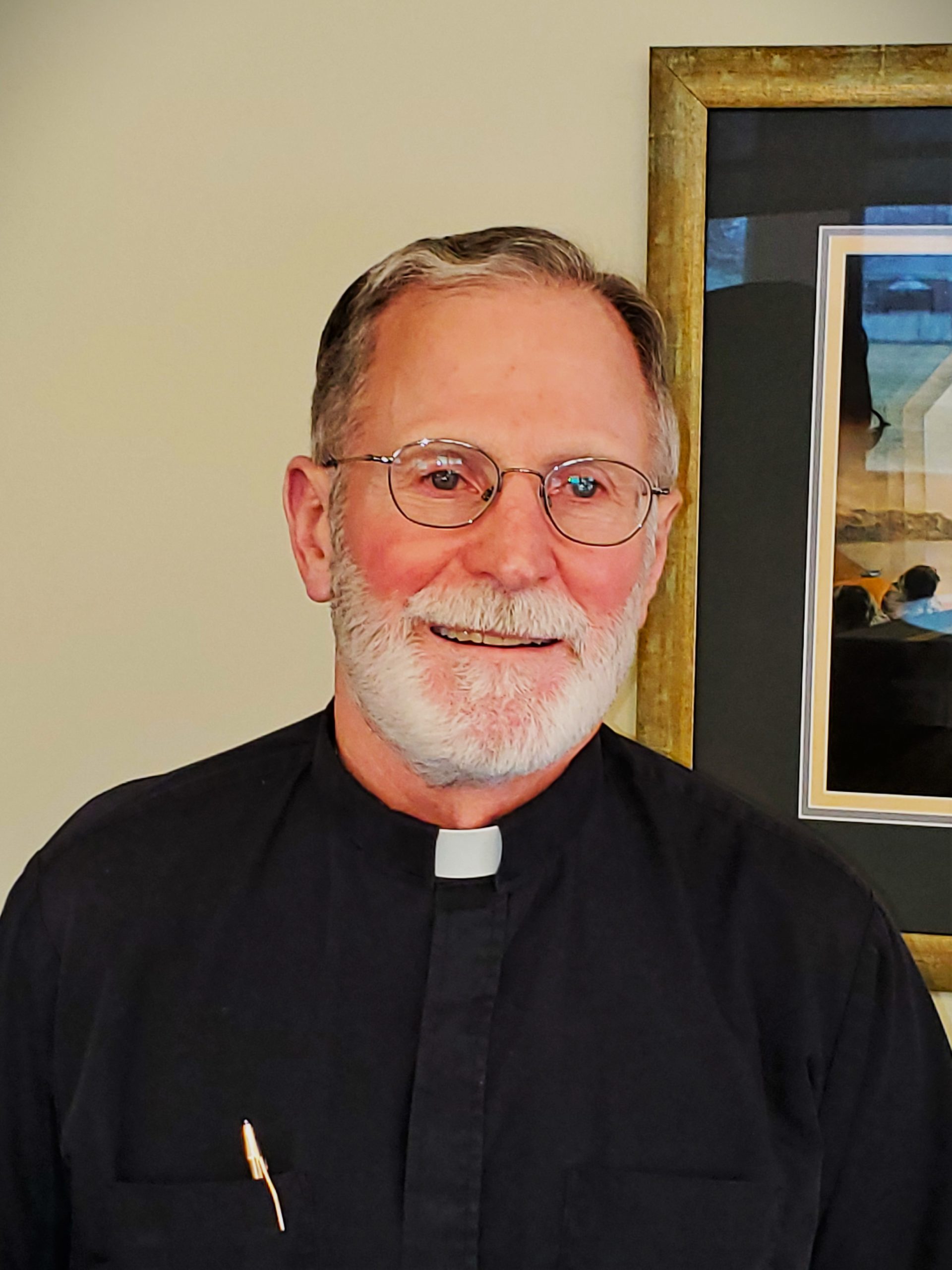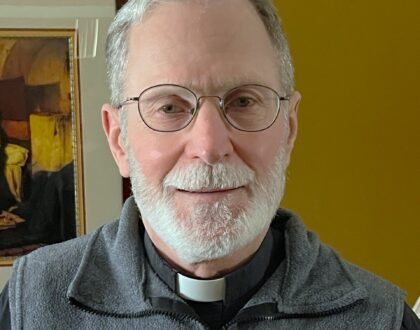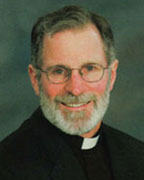Homily, August 18, 2024

From The Pastor
The body of Jesus was, is, and will forever be the eternal Body of Christ. ‘In the beginning was the Word and the Word was with God and the Word was God.’ The Incarnate Christ pre-existed in the communion of the Father with the Holy Spirit. As the words of the prologue of John’s gospel proceed, we read ‘and the Word became flesh.’ Boom! The final act of redemption is underway.
We are in the fourth of five weeks on the theme of the Eucharist. The gospel this week is the most challenging. As a central and essential expression of Catholic Sacramental theology, it is necessary that we come to a working awareness of the meaning and purpose of the Eucharist, the Body and Blood of Christ. To do this, we are well served to look at the larger view to come to a deeper appreciation of the immediate reception of this Sacramental reality.
The body of Christ begins with the Incarnation. In the letter to the Hebrews we are told, “Sacrifice and offering you did not desire, but a body you have prepared for me.” Heb 10:5. The reference is to the sacrifices of the Old Testament, to be replaced by the sacrifice of the Body of the Lord, true and living. This movement of our redemption begins with the Incarnation of God in the flesh.
Mary, Mother of Jesus becomes the body of Christ. Through the power of the Spirit, God is conceived in the womb of Mary. The body of Mary forms and gives birth through the fruit of her womb to the body of Christ in the person of Jesus. In all his humanity, Jesus comes forth as a sensate, vulnerable, dependent body-person to be nurtured by his mother and foster father, Joseph. A body has been prepared by the will of God to accomplish the work of redemption.
The personal body of Jesus matures through childhood and grows into a deepening awareness of his union with the Father. At twelve he is thought to be lost in the Temple. He did not perceive himself to be lost. He longed to be about this Father’s work.
Maturing into adulthood he sets forth to fulfill his mission. He has grown into communion with the Father with the singular desire to do the Father’s will. As time unfolds it becomes more and more clear to Jesus that his body-self would become the agent of our redemption. He comes to understand that he will be the new covenant of love the Father desires with the world. The old sacrifice of bulls, and goats and lambs will no longer serve as an act of atonement for sin.
Jesus comes to his Passion. The Last Supper is his final face-to-face legacy with his disciples. Sharing the Passover meal, he makes it clear that he will become the new lamb of sacrifice. His legacy is one of humble service and love. He washes feet as a sign of service as well as healing and forgiveness.
At the table he takes bread, blesses it, breaks it, and shares it says, “this is my body which will be given for you.” Then the cup, “this is my blood, the blood of the new covenant poured out for you.” The Incarnation has come to its full purpose. The body of Jesus becomes the Body of Christ only in the total self-emptying sacrifice of his person on the Cross. Jesus freely gives his body, his life, all that he is to atone for sin and reconcile us to the Father.
This sacrifice is made fruitful in the Resurrection. The total sacrifice of the dead body of Jesus in now restored, transformed, and glorified. He is alive. His body transforms our bodies through the Eucharist that we may share in his glorified body.
Jesus offered his body as food for the world. The body-person-self of Jesus remains with us in the gift of the Eucharist. His blood-life-sacrifice remains effective for us through our reception of his Body and Blood. We share in the person and the life of Jesus through the Eucharist. His body is real food and his blood real drink because it was fully given for us as sacrifice for the forgiveness of sin; then transformed and glorified through his death and Resurrection.
Every Mass makes present the redemptive mercy of Good Friday. Every time we consume the Eucharistic elements we are further transformed into the person and life of Jesus. We become what we receive by the will and intention of God, and the sacrifice and gift of the Lord Jesus.
Your body is the Body of Christ. Through the Eucharist you become the body of the Lord in the world today. Your hands can be his hands. Your words can be his words. Your love is to be his love through you for others. Your body is holy. It is a sacrament. It is for God’s purpose in service and love. You can be the real presence of Jesus for others through his Body and Blood which you consume. Real food and real drink. You are the Body of Christ.
Father John Esper
Recent Sermons

Homily, March 30, 2025
March 27, 2025

Homily, March 23, 2025
March 20, 2025

Homily, March 16, 2025
March 11, 2025

